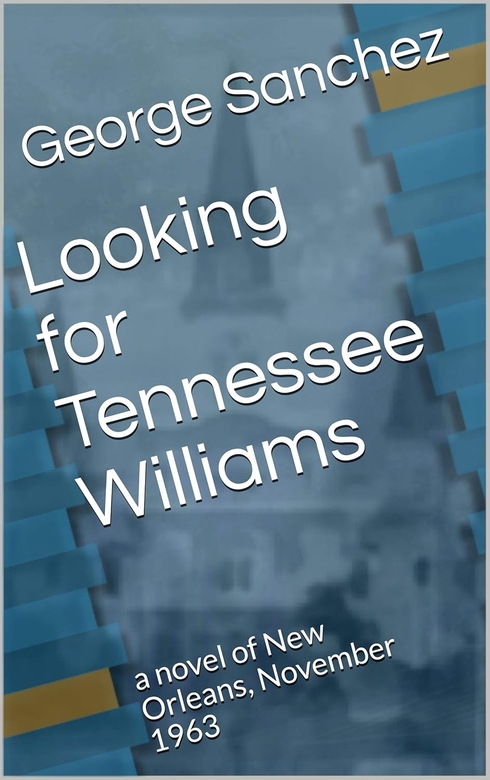George Sanchez’s evocative novel, Looking for Tennessee Williams: A Novel of New Orleans, November 1963, is a captivating literary excursion into the sultry, historical atmosphere of New Orleans during the tumultuous week surrounding President Kennedy’s assassination. Deftly intertwining personal drama with broader social tensions, the novel uses the backdrop of a Tennessee Williams Theatre Festival as both metaphor and catalyst for exploring complex personal relationships.
The plot revolves around a university theatre group’s journey, both literal and emotional, to perform Williams’ iconic play, Cat on a Hot Tin Roof. Central to the story is the intense and fraught relationship between Jill Moreau and Alex Barker, whose personal turmoil mirrors the larger societal upheaval unfolding around them. As their group navigates through rehearsals and performances, a cadre of hidden desires, manipulations, and secrets emerge, reflecting Williams’ own themes of illusion and self-deception.
From the outset, Sanchez channels the vivid stylistic flourishes reminiscent of Williams, creating a narrative steeped in lush descriptions and evocative dialogue. The author succeeds brilliantly in transporting readers to the vibrant streets and shadowy corners of New Orleans, a romantic but sometimes unforgiving city that becomes a focal point for the novel’s exploration of love, desire, and betrayal. The rich description of the city and characters’ inner lives evokes comparisons to classics such as Truman Capote’s Other Voices, Other Rooms and the introspective melancholia of Hemingway’s The Sun Also Rises.
Additionally, the novel’s attention to historical detail, such as subtle references to Kennedy’s presidency, the brewing Vietnam conflict, and societal shifts, imbues the novel with a sense of gravity and urgency, making the fictional elements resonate strongly against a factual historical canvas. Sanchez demonstrates a deep understanding of the delicate balance between morality and desire, challenging readers to contemplate the complexity and, sometimes, hypocrisy inherent in social norms, as the story courageously delves into sensitive themes such as exploitation, societal corruption, and moral ambiguity, aligning well with Williams’ thematic obsessions.
Yet, despite the novel’s lyrical and atmospheric strengths, some areas could have benefited from further refinement; the sprawling cast, though compelling individually, occasionally dilutes narrative momentum, with secondary storylines sometimes overshadowing central themes. In addition, while the emotional intensity between Jill and Alex is undeniably powerful, certain interactions verge on melodramatic, which occasionally weakens the story’s emotional authenticity. That said, Williams’ work is not entirely without melodrama, and Sanchez’s clear love for his setting and characters largely compensates for these missteps.
Ultimately, Looking for Tennessee Williams stands out as an ambitious and successful homage to one of America’s greatest playwrights, telling a story of both American history and American literature, which is done with enchanting reverence, as well as trenchant observation about human weakness and the country’s enduring social issues. Though the narrative breadth sometimes exceeds its reach, the passionate prose and evocative sense of time and place more than justify the novel’s minor flaws.
Fans of Southern literature, Tennessee Williams’ oeuvre, and intricate, character-driven historical novels will find much to admire in Sanchez’s poetically rendered tapestry of human drama.
Book Links
STAR RATING
Design
Content
Editing
Get an Editorial Review | Get Amazon Sales & Reviews | Get Edited | Get Beta Readers | Enter the SPR Book Awards | Other Marketing Services
























Leave A Comment